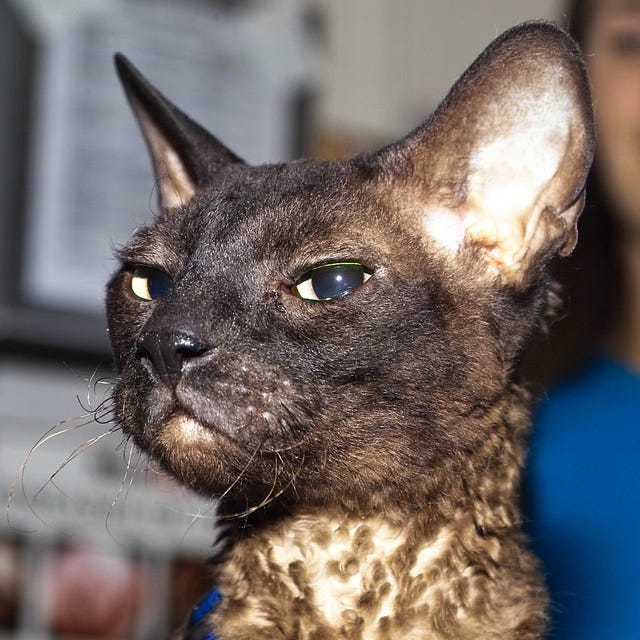If you watch the average British TV drama you'd be forgiven for thinking that class no longer existed. That we've all been compressed into a monocultural middle-class world in which men have business meetings in modular offices, call their sons 'mate', and sprawl on sofas watching football, while women (often criminologists of some kind) wear ironed knitwear, call their professional colleagues 'mate', and hang out in pine kitchens.
If there's a villain it's always the well-off guy who lives in the terraced house with the chequered floor tiles in the hall. He's always having an affair with a younger woman which he will describe to his wife as meaningless, and the wife will always react by flinching and saying 'don't touch me'. Although this couple has a slightly worse marriage than the criminologist and her boring husband, they have a nicer kitchen, with copper skillets hanging from rails (invariably a signifier of corruption).
It's a vision not so much of hell, as of purgatorial blandness, and bears no relation to life as it is lived. Contemporary TV drama, driven by timorous editorial policies and serviced by feeble screenwriting, divides people simplistically along good/bad lines. It wilfully blinds itself to issues of class, prefering to present these as issues of status. In other words everyone's basically middle class, it's just that some people (usually bad people) have more wealth and privilege than others. TV drama, essentially utopian, sets out to soothe. It's all about correcting disturbances to the status quo.
And that's where we fiction writers have the edge. Unlike TV writers, we don't have to respect contemporary pieties or imaginary audience sensibilities. It's not our job to present an idealised, levelled-off society. We don't have to warn our readers that 'this chapter contains scenes of smoking'. We can write what the fuck we like, and we should.
So why am I banging on about snobbery and class? People are no longer interested in the doings of 'aristocrats', and they certainly aren't impressed by them. The Royal Family and the Bullingdon Club are on the back foot. As Martin Amis memorably put it, 'class is no longer classy'. Even the glossy magazines are belatedly coming round to the idea that people who've achieved something are a lot more interesting than people who have simply been born rich.
But it would be a mistake to think that snobbery has gone away. It's just mutated into a weird, contorted version of itself. Contemporary life is riven with prejudice and class-based hate, and just because snobbery has evolved into new forms doesn't mean that it's any less vicious. The new aristocracy is that of the beautiful, the talented and the clever. The new proletariat is that of the people who aren't these things, and who are ritually punished for it. Social media threads are awash with with people castigated for their supposedly low-class culture, for their lack of education, for being chavvy or poor or ignorant. Remember the Brexit vote, with whole swathes of the population dismissed as being too thick to understand the issues?
As society polarises, with the rich getting richer and the poor getting poorer, new prejudices are born, every bit as acute as the old. And that's where we writers come in. We can, and should, use this stuff. Because nothing is more revealing of character than people's hates. If you know who someone affects to despise, you know what they truly fear. And that's invaluable.
When two people meet and like each other, they often describe the things that they love: music, food, places, films, books. It takes intimacy of a very different order to share the things you hate, because it's so much more telling. We're all snobs at times, even if it's only stuff like detesting the smell of vape-smoke, or objecting to people scarfing pizza in the neighbouring cinema seat. When it comes to how we behave in public spaces, everybody draws different lines. And to the writer, that's interesting.
We shouldn't shrink from writing scenes which show our characters in the worst possible light. Or from creating straight-up terrible characters. There are people (some of them bullies, some just folks who haven't thought the thing through) who like to ascribe fictional characters' opinions to their authors. So if you create a character who loathes tattooed people, gay people, rap music, nail-bars or dachshunds, then they'll insist that you loathe these things too, and dump on you for it. It's a transparently silly position to take, and it certainly shouldn't put you off creating realistically prejudiced characters, but it is a thing.
Snobbery adapts. People invent new reasons to look down on other people every day, because human insecurity is a constant, and no amount of hate-speech legislation will ever change that. It's not the job of the fiction writer to change the world, but we should try to accurately reflect it.



Saw this today. Wonder who it reminded me of...
https://www.theguardian.com/lifeandstyle/2024/apr/08/patric-gagne-sociopath-fighting-urges